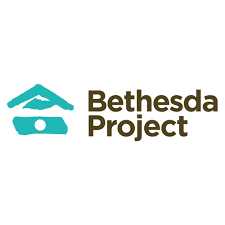HomePennsylvaniaPhiladelphia
Supportive housing provides individuals and families who are experiencing homelessness or at risk of homelessness with a sustainable path towards self-sufficiency. In Philadelphia, Pennsylvania, there are a myriad of supportive housing options available to target diverse populations, including those with physical or mental disabilities, addictions, the ageing, and veterans. Funding for these programs is derived from a combination of state, federal, and non-private organizations.
The Philadelphia Housing Authority (PHA) is a city-affiliated organization that offers a number of public housing options to low-income individuals and families. This includes both apartments and single-family homes dispersed throughout the city. Application for PHA's programs is based on income, family size, and needs.
With financial support from the U.S. Department of Veteran Affairs, the Supportive Services for Veteran Families (SSVF) program provides resources and assistance to help homeless veterans and their families rapidly secure permanent housing. This includes time-limited payments to help cover rent, utilities, moving costs, and security deposits.
The Department of Housing and Urban Development (HUD) funds the Section 8 program, providing individuals and families who meet certain income criteria with vouchers to offset rental costs. In Philadelphia, these vouchers are administered by the Philadelphia Housing Authority. Under this program, participants typically pay 30%-40% of their income towards rent, while the remnant is covered by HUD.
Again funded by HUD, the Continuum of Care (CoC) program provides funding to non-profit organizations, states, and local governments to offer both transitional and permanent housing, along with supportive services. The goal of the CoC program in Philadelphia is to enable homeless individuals, particularly those with serious health issues, to transition into stable, permanent housing.
The state's Department of Human Services provides funding for a range of housing programs – such as the Shelter, Transitional Housing, and Permanent Supportive Housing programs – designed to move individuals and families out of homelessness. They also fund the Housing Bridge Subsidy Program, which provides rental assistance for individuals who are at risk of institutionalization or homelessness due to a mental health disability.
Project H.O.M.E. is a non-profit organization based in Philadelphia that provides supportive housing, employment, medical care, and education opportunities to people experiencing homelessness. They operate several residential facilities in the city and continue to expand their offerings with the help of various funding resources.
In Philadelphia, substantial efforts have been invested into creating and maintaining a diverse array of supportive housing options. This is bolstered by funding from both state and federal entities including the HUD, VA, and DHS as well as non-private organizations like Project H.O.M.E. By doing so, Philadelphia aims to ensure that all citizens have access to stable and affordable housing and related supportive services, playing a crucial role in reducing the rate of homelessness and promoting a safe and inclusive community for all.

